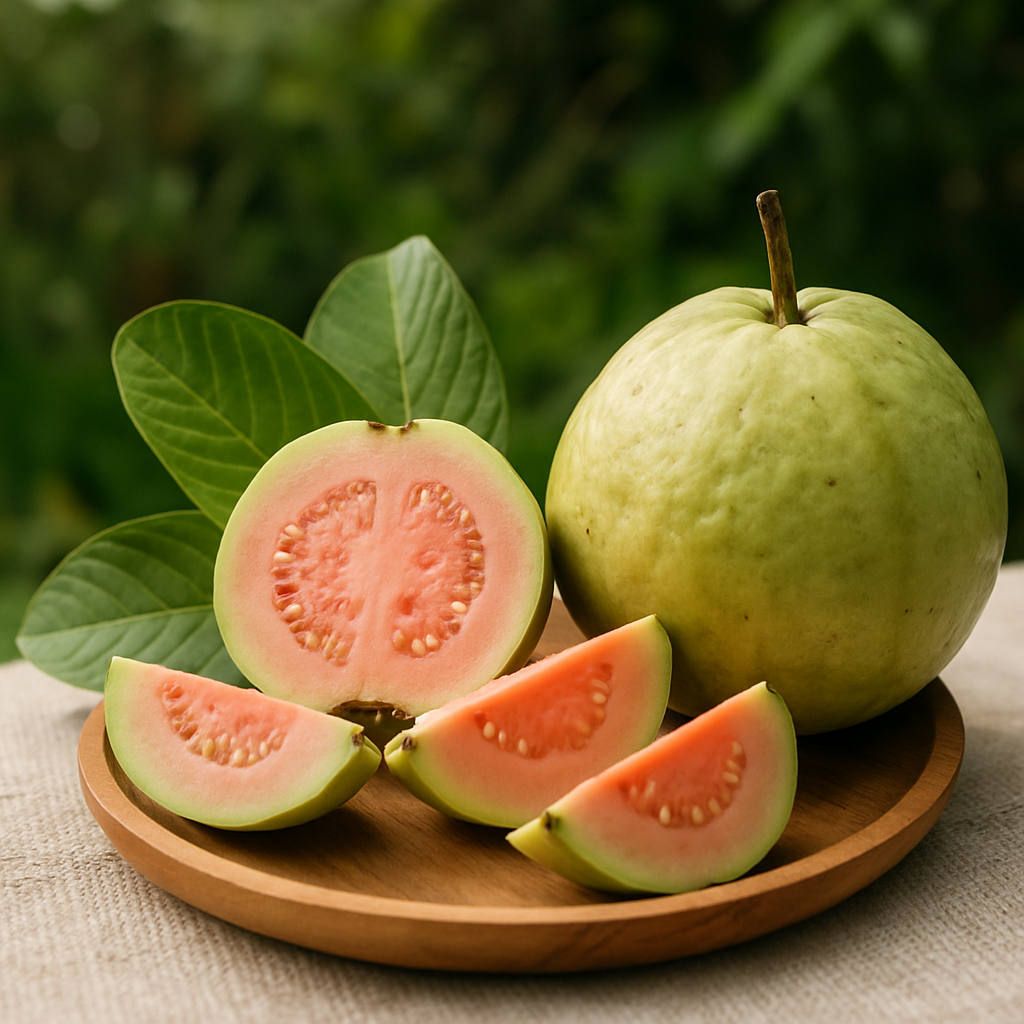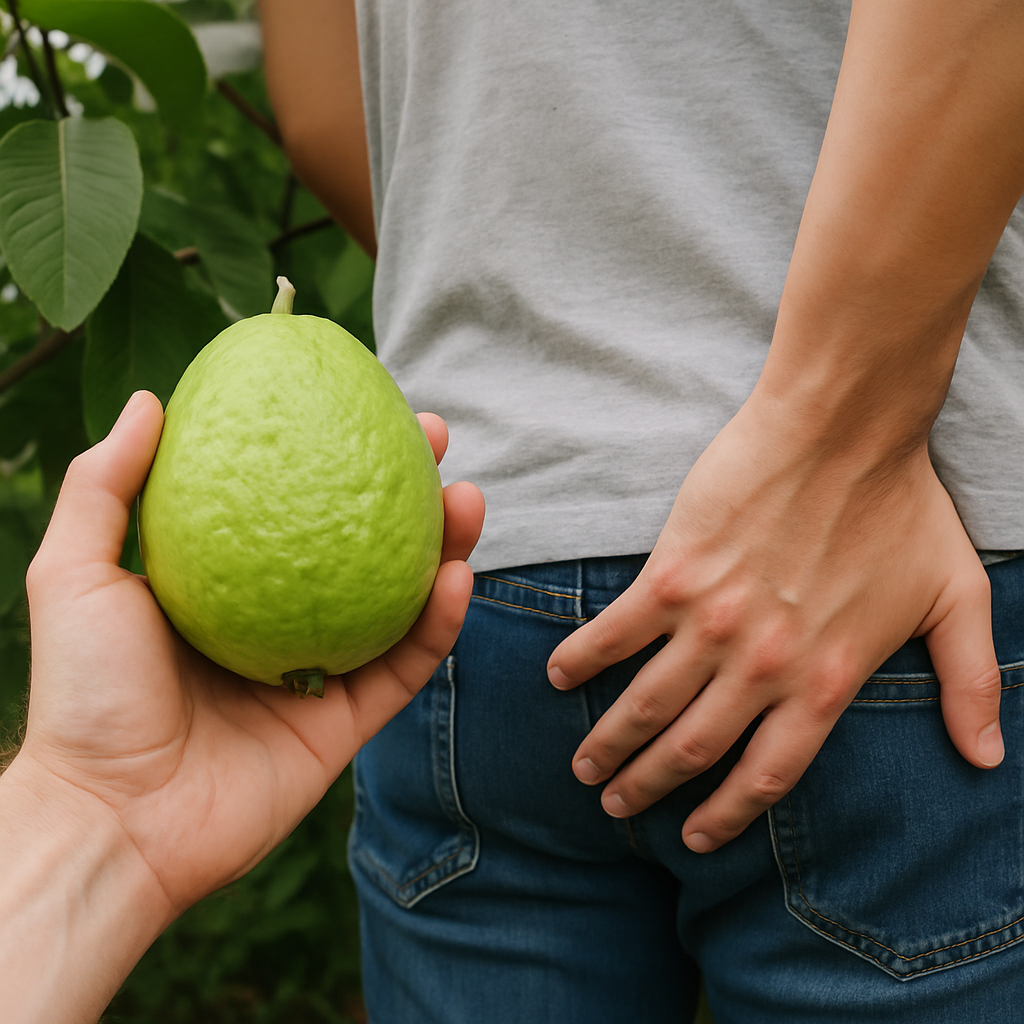Ask Ayurvedic doctor a question and get a consultation online on the problem of your concern in a free or paid mode. More than 2,000 experienced doctors work and wait for your questions on our site and help users to solve their health problems every day.
Is Guava Good for Piles? Ayurvedic Insights and Health Benefits

Living with piles (also known as hemorrhoids) is unpleasent and uncomfortable, and people often look for natural remedies that don’t just reduce the pain but also help long-term healing. One fruit that often comes up in discussions is guava. But really, is guava good for piles? Many traditional healers and even modern nutritionists suggest that yes, guava for piles can bring relief when eaten in the right way. In Ayurveda, guava is considered a cooling fruit that balances digestion, so it’s not surprising that people ask questions like: “Can we eat guava in piles?” or “Can I eat guava in piles daily?”.
In this article, we’ll explore the health benefits of guava, how to consume it safely during piles, and what Ayurveda says about its role. You’ll also learn the risks, precautions, and some common questions that people ask about guava fruit and piles.

Benefits of Guava for Piles Relief
Guava is a nutrient-packed fruit with a reputation for promoting digestive wellness. For people suffering from piles, fiber-rich foods are often recommended, and guava is naturally high in dietary fiber, which can soften stools and reduce strain during bowel movements. This is key because constipation makes piles worse.
Besides fiber, guava also contains vitamin C, antioxidants, and hydration-boosting properties, all of which contribute to reducing inflammation in the anal area. So yes, guava is good for piles when consumed moderately.
Guava Fruit Is Good for Piles: Nutritional Value
The nutritional value of guava is another reason it’s highly praised. One medium-sized guava provides around 12% of your daily fiber needs. It also has potassium, vitamin A, and small amounts of magnesium — all supportive of smooth digestion.
What makes guava special is the type of fiber it has: soluble and insoluble. Soluble fiber helps regulate blood sugar and bowel consistency, while insoluble fiber adds bulk to stool, which is especially helpful for hemorrhoid patients. No wonder people say, guava fruit is good for piles.
How to Eat Guava in Piles Safely
While guava offers benefits, it must be eaten the right way for piles patients to avoid discomfort.
Chewing the seeds properly is important, as swallowing them whole may irritate sensitive bowels in some people. Some prefer guava without seeds — that’s fine too. Eating ripe guava with its skin provides the maximum fiber, but some with sensitive stomachs may peel it.
Can We Eat Guava in Piles Daily?
A common question is, can we eat guava in piles daily? The answer is generally yes — but in moderation. One guava a day is usually safe for most people. Eating too many can sometimes lead to bloating or gas, which isn’t pleasant if you’re already struggling with hemorrhoids.
For best results, combine guava with other fiber-rich fruits like papaya or pears to balance digestion. And remember, water intake matters. If you’re upping fiber through guava, make sure you’re also drinking enough water, otherwise, it can backfire.
Guava for Hemorrhoids: Ayurvedic View
Ayurveda has long recognized the connection between diet and piles. In fact, guava is considered a sattvic (pure) fruit that promotes cooling and balance. It helps pacify pitta dosha, which is linked to inflammation and burning sensation — common symptoms in hemorrhoids.
Is Guava Good for Hemorrhoids in Ayurveda?
Ayurvedic texts suggest that guava can reduce irritation in the rectal area and improve digestion. By keeping the bowels soft and avoiding excess strain, it helps the healing process. That said, Ayurveda emphasizes moderation. Too much guava, especially when unripe, may increase vata dosha and cause dryness or hard stools.
Guava as a Cooling Fruit for Digestive Health
Guava also works as a cooling fruit. Its natural sweetness and hydrating effect reduce internal heat, making it beneficial for piles patients who often complain of burning sensation. Combined with buttermilk or taken after light meals, guava can act like a gentle aid for digestion.

Risks and Precautions of Eating Guava in Piles
While guava can be incredibly supportive for digestion, it’s not a magic fruit that works for everyone the same way. People with piles need to be careful, because what helps one person may trigger discomfort for another.
Some individuals experience bloating, stomach cramps, or excessive gas after eating guava, especially if they eat it unripe or consume too many at once. Since piles already make bowel movements painful, adding digestive discomfort can make the situation worse.
It’s also worth noting that guava seeds can be slightly hard on the digestive tract. If you don’t chew them properly, they may feel rough when passing through the intestine, which could irritate someone with sensitive hemorrhoids.
When Guava in Piles May Cause Discomfort
A lot of people ask, when does guava in piles become harmful? The answer depends on your digestion and how ripe the fruit is. Eating unripe, hard guava can worsen constipation — which is one of the main triggers of piles flare-ups.
For example, someone might think that “more fiber means faster relief,” and so they eat three or four guavas a day. But that overload of fiber without enough water can actually lead to constipation, the very thing you’re trying to avoid. So, ironically, while guava is good for piles, too much of it can have the opposite effect.
Another scenario is people who eat guava on an empty stomach, especially early morning. For some, this works fine, but for others, it may create acidity or mild stomach pain. Everyone’s body is slightly different, so it’s important to notice how your system reacts.
Combining Guava with Other Fruits for Relief
Instead of relying only on guava, you can mix it with other fruits that are naturally soothing for piles. Papaya, watermelon, figs, and bananas are all excellent companions.
For instance, a simple fruit bowl with guava, papaya, and pomegranate not only tastes refreshing but also provides a mix of soluble and insoluble fiber. This helps keep the stool soft and easy to pass.
Adding honey or soaking guava slices in lukewarm water for a few minutes can also make them gentler on digestion. Ayurveda often recommends combining fruits wisely, because not all fruit pairings sit well in the stomach.
Conclusion
So, let’s circle back to the big question: is guava good for piles? The answer is yes — guava for piles can be a helpful, natural way to ease symptoms, soften stools, and support overall digestive health. But like with any natural remedy, it depends on moderation, ripeness, and how you consume it.
Guava shines because it’s accessible, affordable, and packed with fiber, vitamins, and cooling properties that Ayurvedic wisdom praises. Yet, it’s not a one-size-fits-all cure. You still need to balance it with other foods, drink plenty of water, and avoid overindulgence.
If you’re suffering from piles, guava might just be a simple step toward relief — but always listen to your body. And if your symptoms are severe, don’t just rely on home remedies; consult a healthcare professional.
FAQs
Can guava worsen constipation in piles?
Yes, if eaten in excess or if the guava is unripe, it may cause constipation instead of relief. Balance and hydration are key.
How much guava fruit is good for piles daily?
One medium guava per day is usually safe for most people. Eating 2 might also be fine if you’re drinking enough water.
Is guava juice beneficial for piles patients?
Yes, but fresh juice with pulp is better than filtered juice. The pulp contains most of the fiber that helps relieve constipation.
What fruits are better than guava for piles relief?
Papaya and figs are often considered even more effective than guava, since they’re gentler on the stomach and have natural laxative properties.

